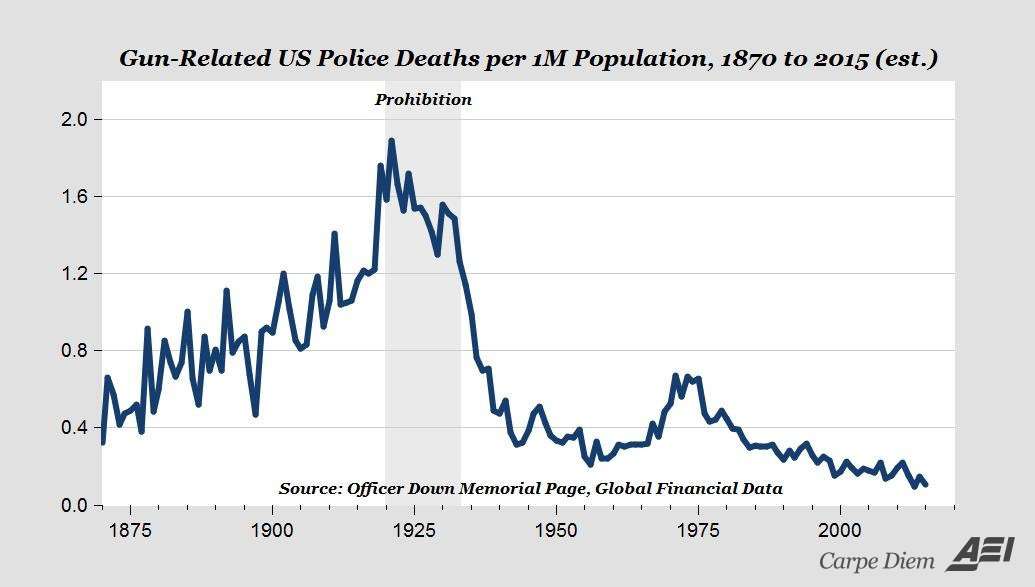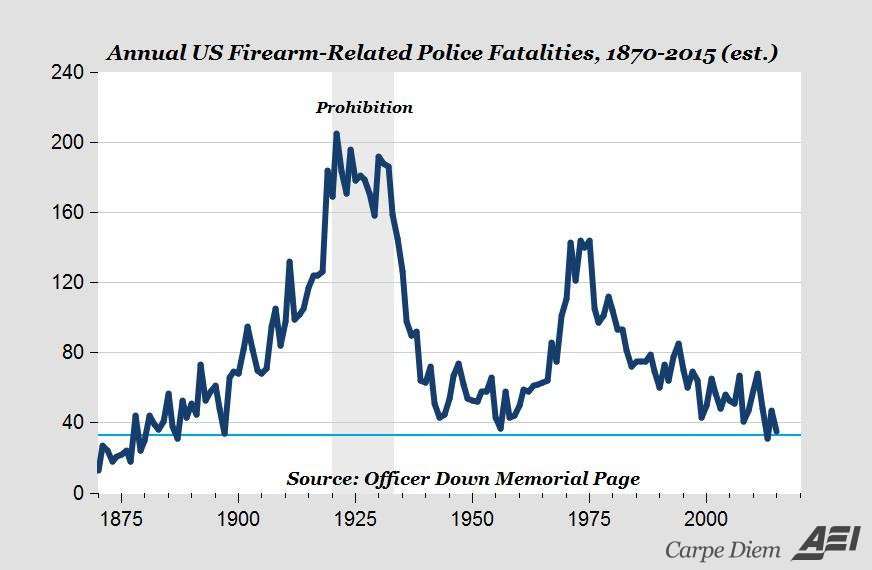The Myth of the 'War on Cops'
If there really is a war on cops, whoever's fighting it seems to be losing.
With the "war on cops" narrative on the rise again, you might be wondering: When it comes to lethal violence against police officers, how does 2015 stack up against other years? Mark Perry of the American Enterprise Institute took a look at the annual number of cops who died of non-accidental gunshots, as measured by the Officer Down Memorial Page. This year isn't over yet, obviously, but if the trend thus far continues, 2015's rate will be higher than 2013's. It will also be lower than every other year since 1870:

The trend may look a little different if you added the cop-killings committed with other weapons—knives, cars, bombs—but probably not drastically so. (2015's total would go up by six, 2013's by eight. 1975's would grow by 17.) The pattern is just overwhelming. Even if you don't adjust for population, the police of 2013 and 2015 are on track to have fewer firearm deaths than any other years of the 20th and 21st centuries:

It's a funny sort of war that produces a lower body count than there was before the war began.
Update: Radley Balko has posted a more detailed discussion of this issue at The Washington Post. Among other things, he shows that assaults on police officers have also been in decline, and he looks at what happens if you calculate a cop-killing rate based on the number of officers on the street rather than the total U.S. population. (The short version: The exact numbers depend on what estimates you use for the police population, but the trend there is also sharply downward.) Read his post here.


Show Comments (175)